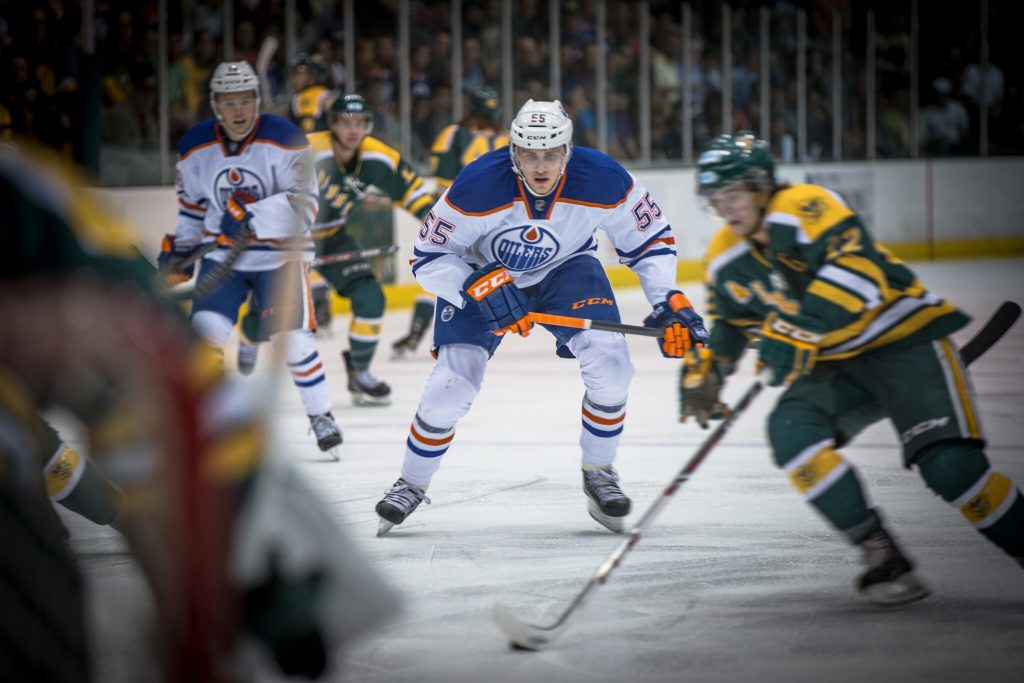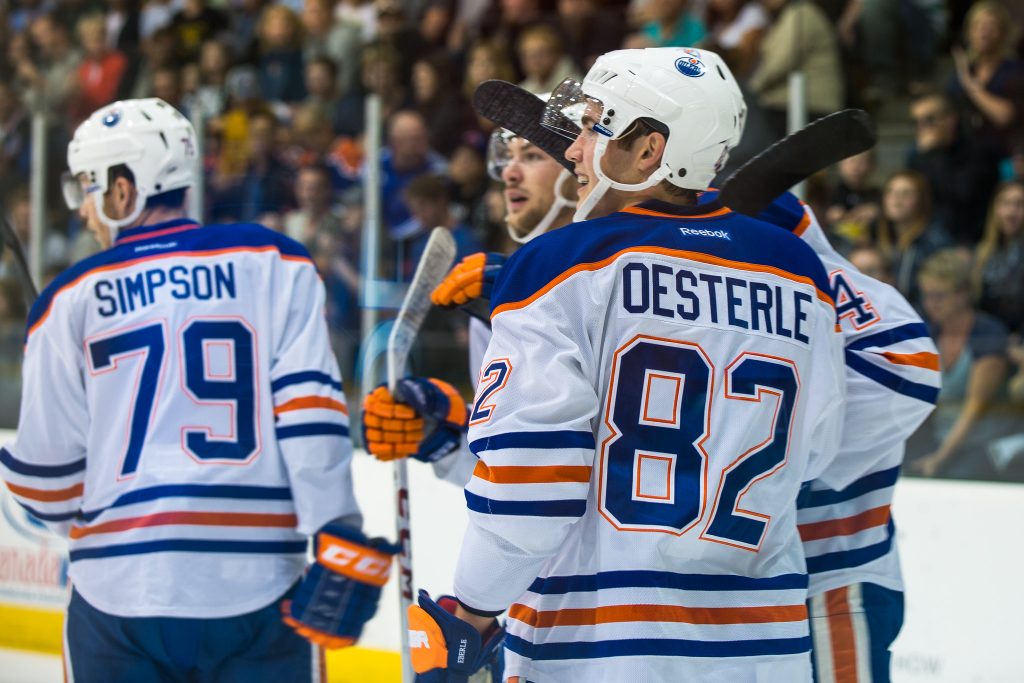
Can Ken Holland turn the Edmonton Oilers around?
By Matthew Beaupré, May 17 2019—
Front office moves in sports are often hard to assess in the moment and the hiring of Ken Holland as General Manager of the Edmonton Oilers is no different. Holland’s track record makes him a Holy Grail of NHL GMs, in league with Lou Lamoriello and GM wunderkind Steve Yzerman, but is that enough to set the Oilers on the path to success?
During his time as GM of the Detroit Red Wings — a staggering 22 years — the team won and they won a lot. Holland and the Wings won three Stanley Cups together in 1998, 2002 and 2008 as well as one during his time as assistant GM in 1997. From the beginning of the 1997–98 season — Holland’s first as GM — up to his resignation from the Wings recently, the team also won four President’s Trophies as the league’s best regular season team, won their conference four times and won their division 10 times. Despite this impressive track record, however, there are still those that doubt Holland’s ability to right the ship in Edmonton.
Many of the questions that have been raised revolve around dealing with Edmonton’s salary cap and the team Holland left in Detroit. Others have also raised questions over how responsible Holland actually was for the wins that occurred during his reign over the Red Wings. Given the difficulties that the Edmonton Oilers franchise has gone through in the previous decade and a half, fans appear rightfully worried that this hire is simply another addition to the old boys club which appears to have been running the team into the ground. At this point, an impartial view of the hiring is owed to these fans in order to either assuage their fears or confirm their doubts.
The first question that must be asked in order to do this is whether or not Holland’s reputation is justifiable. The short answer is yes. Under Holland, the Red Wings only missed the playoffs in the last three years out of his 22 years running the team. Sustained success on that level is incredible due to the change the league and the sport experienced in that time. While one could quite reasonably argue that the team shot itself in the foot by not giving up and rebuilding earlier, this position disregards two things. First, it’s incredibly hard to make that call when you’re so close to the team. The GM is likely to feel compelled to keep making one last push for his players and their fans. Second, it’s not easy to maintain a first-round elimination team for 19 years. Players get old and move on to better opportunities or better pay while the team maintains consistently poor or middling draft positions with which to replace these losses. Inevitably, keeping the team afloat requires a good mix of strong drafting, professional and amateur scouting and cap management skills — all of which have been missing from Edmonton in the past few years.

But what of the team that was handed down to him? Can his success really be attributed to his own decisions? It is no secret that the 1996–97 Red Wings were an incredible team featuring names such as Steve Yzerman, Nicklas Lidstrom, Brendan Shanahan, Kris Draper and Sergei Fedorov, backstopped by Chris Osgood and Calgary Flames legend Mike Vernon. It should be remembered, however, that Holland was not a complete free-rider. The man was intimately involved in the team prior to becoming its GM — first as a scout and then as an assistant GM.
Furthermore, in hockey, 2008 is an eon apart from 1998. The Wings had massive turnover by 2008 and of the previously mentioned players only Lidstrom, Osgood and Draper still remained, all of which were in their mid-thirties by that point. While an argument could be made that the Red Wings took advantage of a market inefficiency in European scouting to obtain players like Pavel Datsyuk and Henrik Zetterberg, they nonetheless drafted and developed these players alongside a strong supporting cast. Players like Jiri Hudler and Valtteri Filppula were also drafted and developed under Holland and played a role in their 2008 success. It should also be noted that in 2005, the league introduced the salary cap and, as Holland acknowledged in his first press conference with the Oilers, this meant he had to cut the team’s salary by more than half through trades and moving on from players. To win the cup just three years after having to do such a large restructuring again speaks to Holland and the Wings’ ability to plan, scout, draft and develop.
But does he have the ability to fix the salary cap situation the Oilers find themselves in? While the answer would appear to be yes based on the aforementioned achievements, fans worry about some of the contracts he handed out to players. Justin Abdelkader for instance has a no-trade clause and is making $4.25 million for four more years but produced only 19 points this year. It’s hard to write off this concern given the difficulty contracts like Abdelkader’s caused for the Red Wings in signing their rising star Dylan Larkin last summer. Part of Holland’s mistake in these contracts, however, can perhaps be attributed to loyalty to his players, many of which have only been with the Red Wings and therefore only Holland. Loyalty is a dangerous thing in sports management as players and the way the game is played can change overnight.
Whatever attachments Holland may have are only dangerous to Edmonton if he decides to bring his worst mistakes in Detroit with him to the Oilers via trade. If this can be avoided, in the short term his lack of connections to the Oilers should allow him to ruthlessly clean house. Moving on from the likes of Milan Lucic — $6 million for four more years with a no-movement clause — and Kris Russell — $4 million for two more years with a no-movement clause — is going to be his biggest challenge. His experience as a GM should help him with this but their no-movement clauses will make it difficult for him.

Setting the cap issue aside, there is reason for optimism. Something which has been repeated many a time with respect to the Oilers is that the core of players is there — and it really is. Ryan Nugent-Hopkins and Leon Draisaitl are two significant pieces, and in combination with Connor McDavid — who himself is enough to make any team a contender — they have the potential to have the best center core in the league bar none. The problem is that everything around it is in shambles. There are few wingers worth mentioning positively, the defense is rarely healthy, the goaltending is a huge question mark, they’ve mishandled player development in recent years and they don’t have a head coach.
Can Holland be relied upon to fix these problems? Three of these problems are well within Holland’s capacity to solve. Wingers are plentiful in the NHL and it should be easy to get a few competent ones to fill out the roster. One or two that can keep up with McDavid’s speed will be important acquisitions but should be easily found in free agency or trade. High-end skill could also be coming with the eighth overall pick in this year’s draft as every year several players in the top ten immediately transition to the NHL in the season following their draft. Furthermore, the organisation has begun to turn around its development since the firing of former GM Peter Chiarelli and Holland has spoken at length to its importance. This means the team may soon have a development strategy for the exasperated and poorly managed prospect Jesse Puljujarvi. Coaching, meanwhile, is a tough hole to fill with the Flyers vacuuming up Alain Vingeault and Florida excitedly grabbing Joel Quenneville, but most new GMs will have a person in mind and Holland undoubtedly has the connections and experience to find someone.
Defense and goaltending are where the largest uncertainties lay. The defense could see a quick turnaround with health, one or two trades, and the infusion of youth in the form of the Evan Bouchard or other prospects like Ethan Bear and Caleb Jones who might be close. This problem is solvable but it may rely on player development done prior to Holland’s entry and lingering health issues out of his control. Goaltending on the other hand, is a perpetual mystery of “voodoo, wizardry, and bullshit” as fans of Steve Dangle will know. The emergence of Thomas Greiss and Curtis McElhinney this year as above average — and at times spectacular — goaltenders is a fact which can attest to this as few would have predicted their success at the beginning of the season. As a result, Mikko Koskinen who performed well at times this year may deserve another shot to prove himself. Unfortunately, he is probably going to get it not based on merit but because of the horrendous contract bestowed upon him as Chiarelli’s parting gift to the franchise. Whether or not the goaltending is corrected will also depend heavily on Holland’s moves to improve the defence and the systems preferred by whichever coach is hired, as evidenced by the New York Islanders this season. While some may like to think Holland’s experience as a pro-goalie would help him in this area, finding a working tandem may be as much luck as skill.
So, what should our verdict be on the hiring of Ken Holland? This article has been cautiously optimistic. The hiring does very little to assuage concerns of an old boys club dominated Oilers but he is nevertheless one of the most qualified old boys available for the position. Holland has the potential to start over in a new market and the change of scenery could be beneficial to someone who spent a third of his life managing one organisation. Being in Edmonton could challenge his existing assumptions and drive a personal renaissance or being locked in a room with the 1980s Oilers that currently make up the upper echelon of Edmonton’s management could muddle his plans. The Oilers’ position is not an easy one to correct but, with McDavid, patience — and two or three years — Holland could turn the franchise around. Only time will tell.
